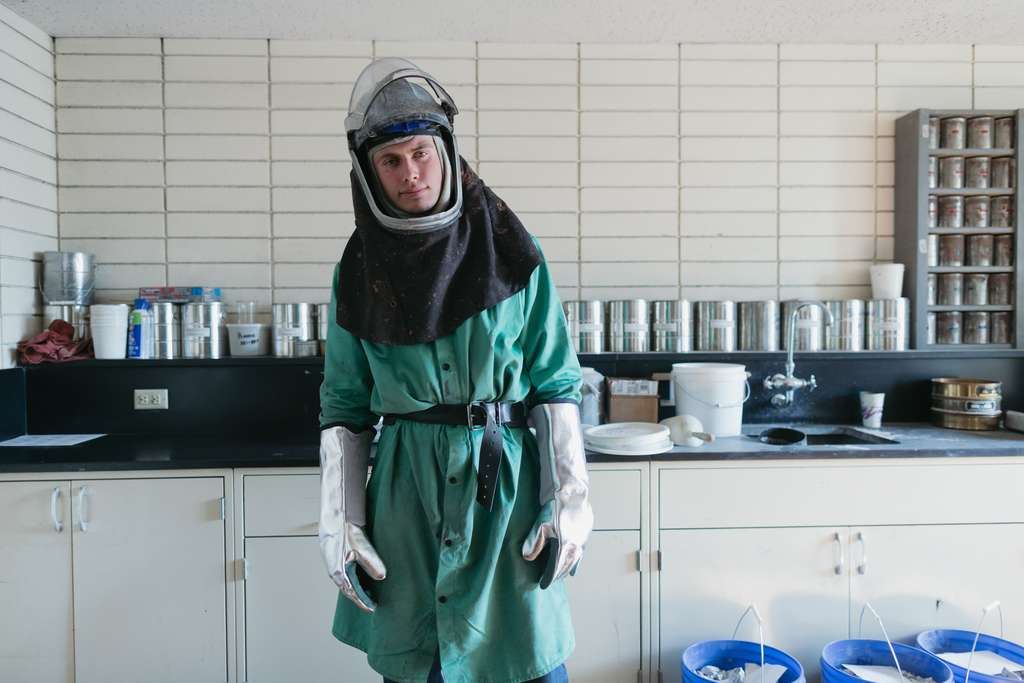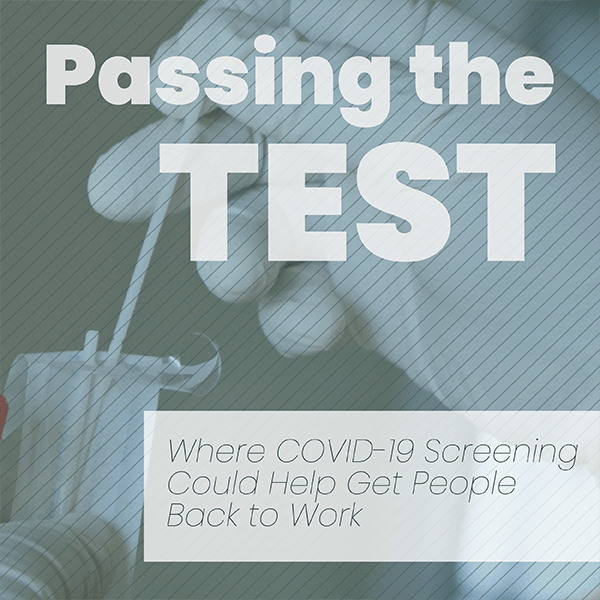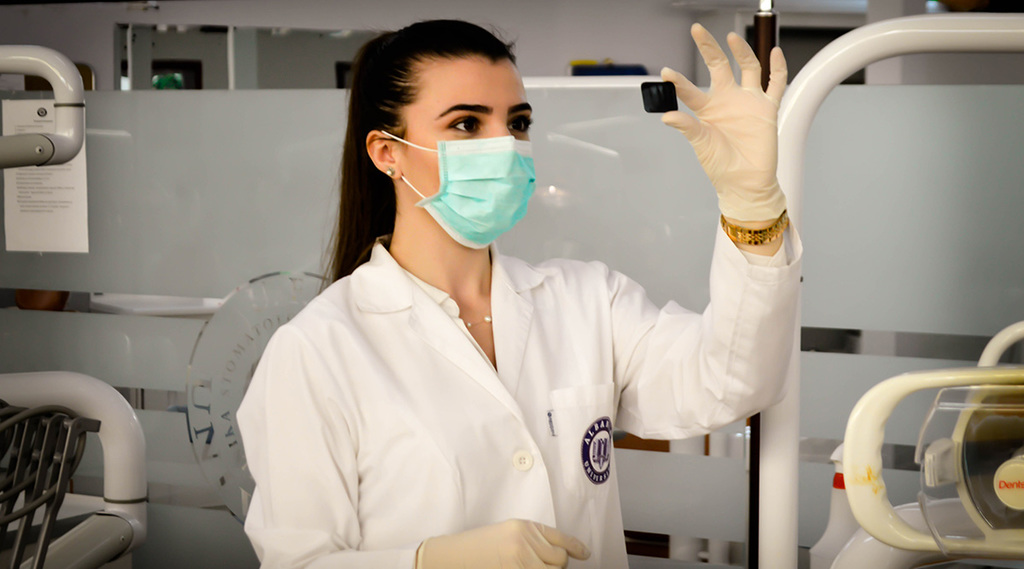US Drug Test Centers Blog
What to Know About Heavy Metals Poisoning | US Drug Test Centers
Heavy metals are natural elements found on and within the earth. They're used in many applications including agriculture, medicine, food, and multiple industries. Many of these heavy metals — like zinc, copper, chromium, iron, and manganese — are even essential to human bodily functions. That's why they have their own supplements. However, accumulating too much of certain metals is harmful and can lead to serious (even deadly) health problems. So how does this relate to US Drug Test Centers? Let's explore the ins and outs of heavy metals poisoning and testing for heavy metals in the body.
Why Would Someone Need Heavy Metals Testing?
Healthline notes that "heavy metal poisoning occurs when your body's soft tissues absorb too much of a particular metal." The most common metals that can cause this are lead, zinc, mercury, cadmium, chromium, and arsenic.
According to the National Organization for Rare Disorders (NORD), such metals compete with and replace certain essential minerals, thus affecting your body's organ systems.
One might need heavy metals testing based on the kind of environment they live or work in.
For instance, because older homes were often originally painted with lead-based paint, these are sometimes culprits of heavy metals poisoning. Individuals who work in an industrial area might also be susceptible.
Additionally, you can be exposed to high concentrations of heavy metals from food, air or water pollution, certain types of medicine, and improperly-coated food containers. US Drug Test Centers offers different heavy metal urine and hair tests for people who feel that they might have been exposed. It is important to test yourself for these heavy metals if you are concerned, even if it is just as a safety precaution.
Below are other forms of potential exposure to heavy metals. (Bear in mind, however, that poisoning happens with heavy or frequent contact. You don't need to avoid heavy metals completely.)
- Living in areas with high levels of rocks, water, and soil
- Ingesting insecticides, pesticides, or herbicides
- Doing construction work, welding, or radiator repair
- Mining and refining gold and silver ores
- Manufacturing mirrors, incandescent lights, or heavy equipment
Furthermore, when a person who is exposed to heavy metals returns home or goes anywhere else where they're around people, they can bring toxins with them. Heavy metals like lead dust, concrete-crusted clothing, and a number of oils, greases, and solvents can inadvertently poison the people around you.

So, if you leave with or spend time near someone who might be around heavy metals, you should consider getting tested through a hair or urine sample.
Also important to note is that a person with other underlying health conditions might be even more vulnerable to heavy metal poisoning.
This is yet another reason why is important to understand if you're being exposed to heavy metals, and why it's vital that you get tested for heavy metals if you suspect you've been exposed. Your health and safety — and the health and safety of those around you — depends on it.
When Should You Test Yourself for Heavy Metals Poisoning?
As we discussed above, if you feel you might have been exposed to heavy metals, you should get tested immediately. Even more importantly, if you begin to experience any of the below symptoms, you should schedule an appointment for testing right away. US Drug Test Centers provides this testing at more than 20,000 locations across the United States.
Symptoms of heavy metals poisoning vary depending on the type of metal that you've been exposed to.
Across several types, you might experience abdominal pains, chills, diarrhea, shortness of breath, and tingling in your hands and feet. For children, it may cause unusually formed or weakened bones, while pregnant women are at an increased risk of miscarriage or premature delivery.
Symptoms of mercury poisoning include hearing and speech difficulties, lack of coordination, and muscle weakness, while lead poisoning leads to aggressive behavior, loss of appetite, and memory loss.
Indicators of arsenic poisoning include swollen skin, unusual heart rhythm, and muscle cramps, while cadmium poisoning causes breathing problems and fever.
Everyday Health adds that acute heavy metal poisoning can lead to confusion, nausea, numbness, vomiting, or coma, while chronic exposure can cause constipation, headaches, and joint and muscle pains. NORD and the National Center for Biotechnology Information (NCBI) also explain the symptoms specific to each heavy metal, including chromium, cobalt, manganese, phosphorus, and thallium.
While some of the symptoms might seem relatively harmless, make no mistake about it: chronic heavy metals poisoning can kill you.
Prevention
It can be difficult to tell if you are being overly-exposed to hazardous materials at work or where you live. That's why it's important to take precautionary measures to minimize your chances of exposure. Here are a few things you can do:
- Wear masks and protective clothing if you work in a potentially risky environment.
- Pay attention to potential sources of lead and seafood advisories on mercury levels.
- Check product labels for metal content.
More importantly, companies, especially those in the industrial fields, should have safety policies that cover heavy metal provisions. This is both to keep everyone on the team safe and also to protect the employer from any liabilities.

But Wait, If Heavy Metals Are So Dangerous, Why Do Our Bodies Need Them at All?
Great question.
Despite how dangerous they can be in higher amounts, in smaller amounts, some heavy metals serve a very important role in your health. For instance, you need zinc for wound healing, protein synthesis, and immune function. And you need iron for stronger immunity, the ability to concentrate, and energy.
Eliminating them completely isn't the answer and can actually make you quite sick. This is why many people supplement if they aren't getting what they need from nutrition alone.
How US Drug Test Centers Can Help
At US Drug Test Centers, we offer heavy metals testing to screen for and diagnose poisoning for those who may have been acutely or chronically exposed. We'll also monitor excessive metal concentrations in employees with frequent exposure. Our laboratory offers different groupings specific to hair and urine as well as comprehensive heavy metals tests to help ensure people's well-being and protection.
On our website, you can find a 5-panel hair heavy metals test and 5-panel urine heavy metals test, which both screen for arsenic, hexavalent chromium (chromium-6), lead, cadmium, and mercury.
We also have a comprehensive panel hair test, which can test up to one year back in time and screens for lithium gadolinium, beryllium thallium, aluminum bismuth, chromium tungsten, manganese, cobalt, nickel, copper, zinc, arsenic, selenium, silver, cadmium, tin, antimony, barium, platinum, mercury, lead, thorium, uranium, titanium, vanadium, rubidium, molybdenum, strontium.
Contact US Drug Test Centers today to find out how we can work together to keep your workers healthy and safe at all times, or simply schedule an appointment online.























